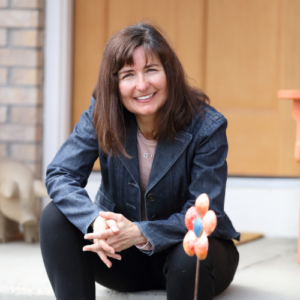DeBarros: Colorado’s ozone problem doesn’t have to be up in the air
Last winter’s Marshall Fire, the “urban firestorm,” as Boulder climate scientist Daniel Swain described it, burned my house to the ground.
My home was just one of over a thousand homes and small businesses destroyed by a grass fire blown into an inferno by hurricane-force winds. Two lives were lost. I was lucky; I evacuated.

Beyond destroying structures, the fires blanketed the Front Range with harmful byproducts, creating a broad public health concern as millions of Coloradans breathed in smoke and ash.
SPONSORED CONTENT
Electric Vehicle Revolution: Install EV Chargers Now or Lose Tenants Tomorrow
Ignoring the shift towards electric vehicles is risky. Mac Electric offers an EV charging feasibility study to answer commercial property owners' questions.
What happens to a community, a business, to our loved ones, when the air we all breathe deteriorates?
In a way, it’s similar to how we struggled together with the COVID pandemic: Behavioral changes are asked for, sometimes mandated, to safeguard the health of living beings. Countless businesses bore the brunt of pandemic lockdowns. They had to close or adapt to radical change through on-the-fly innovations for economic survival.
Like tinkering with an established business model in a pandemic, there are things you can do, habits you can change, or a company culture to adjust, that can help diminish Colorado’s chronic pollution and protect our state’s valuable quality of life.
Why this is important
In mid-April this year, under the guidelines of the Clean Air Act, the Environmental Protection Agency proposed downgrading the air-quality rating of the nine-county Denver metropolitan region to “severe” from “serious.”
This change in status also puts the Denver region into the EPA’s 10 worst U.S. cities for hazardous air pollution, and this ranking now rival’s our place as 6th Most Polluted City as ranked by the American Lung Association.
While we didn’t win first place (thankfully) in either competition, the fallout is still staggering. Everyone’s immediate response is critical.
Fallout
In May, U.S. News & World Report’s annual Best Places to Live list dropped Denver down to No. 55 in the country. Denver’s poor air quality was one of the reasons cited; last year Denver ranked No. 4.
The Front Range has wrangled with excessive ozone levels for decades, especially in summer months when smog can force people with respiratory health issues indoors. Those with asthma are particularly vulnerable to ozone particles.
The natural world is gravely threatened by persistently high ozone. Wilderness, green spaces and wildlife refuges are vulnerable to pollution; Wild animals can’t just “stay indoors.”
What we can do
Commuting Solutions exists to illuminate sustainable transportation options that you, your business and your employees can use to help improve our shared air quality across the Front Range.
Front Range businesses have historically championed commuter options. With your help, the downtowns of Boulder and Denver are now linked by the U.S. 36 Bikeway. RTD Rapid Bus Transit also runs along the Bikeway and the U.S. 36 Express Lanes. Continue to offer teleworking for your employees. Promote new public amenities, such as the Bike-n-Ride shelters, as they become available.
When reputation and tourism are at risk, your business helps counter negative perceptions by publicly demonstrating a clean-air culture. Participation in transportation options events associates your business with an appealing, healthy-environment ethos.
Your support also motivated the Colorado General Assembly to pass two important bills during the 2022 legislative session. This includes the Alternative Transportation Options Tax Credit bill, HB 22-1026, that gives businesses a refundable 50% tax credit for employees’ alternative transportation expenses.
Get involved
Every effort, small or large, truly matters in our fight for cleaner air. Don’t be afraid to have tough conversations around environmental justice, equity, and why air quality worsened.
One such conversation is taking place at the 6th Sustainable Transportation Summit on July 28. The topic is “Clear the Air” where the northwest metro region’s business and civic community will be in conversation with air-quality, sustainability and transportation experts.
There, we’ll discuss the ground-level actions needed to improve air quality — locally and globally.
The commitment your business makes to our mutual environment will move the needle toward a better outcome for Colorado air and get The Centennial State back to the top of the lists it deserves.Audrey DeBarros is the executive director of Commuting Solutions, a nonprofit organization whose mission is to connect people to places in the northwest metro region today and for the future.

